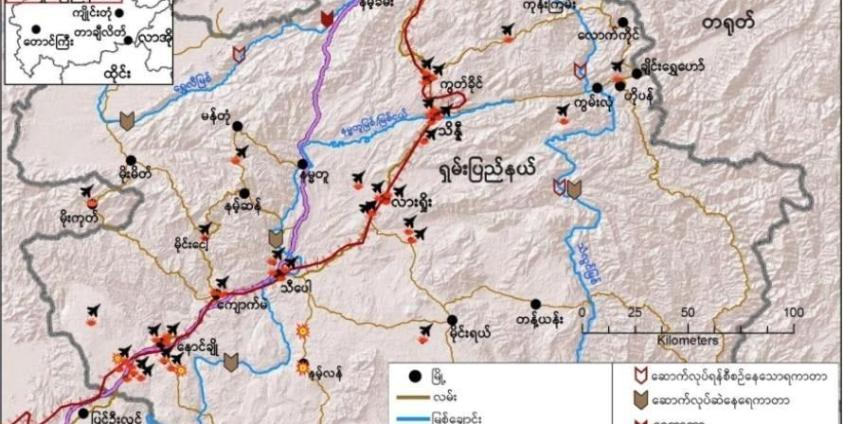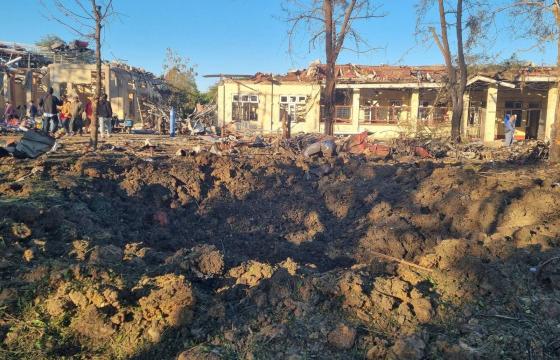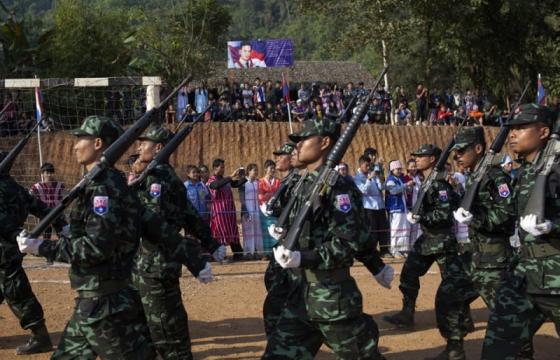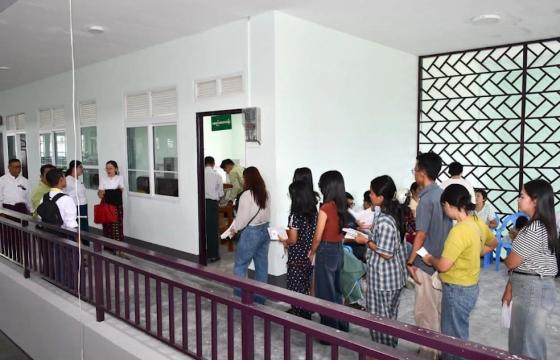In order to implement the Kyaukphyu-Muse railway, a Chinese-backed project in Myanmar that is part of the China-Myanmar Economic Corridor (CMEC), the junta army has been conducting targeted attacks on towns and villages where the railway would run through in northern Shan State and Mandalay, killing more than 60 locals and injuring over 130 others in two months, according to the Shan Human Rights Foundation (SHRF).
According to a statement released by SHRF on 20 December, at least 68 civilians were killed and 136 others injured in junta airstrikes and artillery attacks in nine townships in northern Shan State as well as Mogok Township in Mandalay Region between the period of 9 October and 10 December 2024.
The SHRF added that civilian areas that were not military targets, such as schools, hospitals, clinics, monasteries, churches, stores, and workplaces, were among the targeted locations. There was no ground fighting at the time of the attacks, the SHRF noted.
The townships that were targeted were Hsipaw, Mongyai, Hsenwi, Lashio, Kunlong, Naungcho, Namhsan, Kutkai, Mogok, and Kyaukme.
Among the nine townships, eight are under the control of the Three Brotherhood Alliance. Mongyai Township has been targeted and attacked, despite not being under the control of the resistance forces or having been involved in ground combat.
For the development of China’s landlocked Yunnan province, the Chinese government proposed a Kunming-Kyaukphyu railway in 2011, which would be a crucial part of the CMEC corridor, linking Kunming with a special economic zone in Kyaukphyu township via Muse township.
The railway will be divided into two sections: the first will connect the border town of Muse in northern Shan State with Mandalay while the second would run from Mandalay to Kyaukphyu.
A feasibility study for the railway was carried out in mid-2017, followed by a tentative memorandum of agreement for the Muse-Mandalay railway section about a year later. A feasibility study memorandum for the new Mandalay-Kyaukphyu railway project was signed in January 2021.
However, the railway project stopped after the COVID-19 pandemic and the coup in Myanmar. Following discussions between China and the Myanmar junta to revive the Muse-Mandalay railway project, the military junta initiated preparations in July 2022. But in October 2023, the Three Brotherhood Alliance took over the townships that were part of the Muse-Mandalay railway project during Three Brotherhood Alliance’s Operation 1027.
The junta leader met with Chinese Premier Li Qiang during his November visit to China to discuss the possibility of restarting the Muse-Mandalay-Kyaukphyu railway project in various locations based on the situation on the ground.
The 409.96-kilometer railway segment connecting Muse and Mandalay is projected to cost US$8.9 billion and will consist of 124 bridges, 60 tunnels and 11 power substations. The electricity produced by hydroelectric dams on the Shweli, Namtu, Myitnge, and Salween rivers – which were designed and built primarily by Chinese companies – will be used by the power substations.






